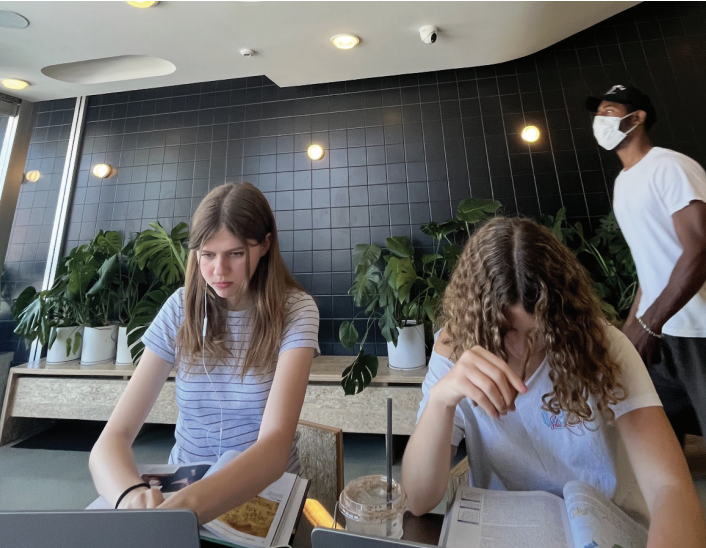After a military coup de-stabilized the African country of Madagascar, alumna Kelly Schuur ’03, who has been working in the country’s Peace Corps, evacuated her station and is now one of the three selected from a group of 48 reassigned to continue her service in the city of Mali, West Africa.
Schuur, daughter of history instructor Martha Schuur and dean of faculty, has worked in the small village of Betroka for the past six months, living in a hut and dealing with HIV awareness and female malnutrition. But once the evacuation order was given on Jan. 30, all Peace Corps Madagascar workers had to immediately prepare to leave.
“She had no idea what was going on since she was in a rural village, but that she had to pack her belongings and be ready to leave within the hour,” said Martha Schuur.
Kelly and the other workers transferred to a Peace Corps Center adjacent to the capital, and waited there for a month eating burgers and simply hanging out talking about what was going on.
“They basically were treated to the American lifestyle which was hard since they had already converted to a life of rice,” Schuur said.
As the days dragged on, the central Peace Corps office in Washington began to get restless with the amount of money they were spending, and ordered the workers back to their villages on March 4. Just a week later, however, Kelly and her co-workers received the news that until the turmoil ceased, Peace Corps Madagascar would be shut down.
The group was then taken through the city of Finiar to an airfield adjacent to a lake near the capital of Antananarivo where aerial evacuation was detained after the airfield had been set on fire.
After one final attempt to evacuate, Kelly and the others traveled through South Africa, and on Mar. 24, the group safely made it to the city of Pretoria. There, they were given the options to compete for 3 openings to work in the Mali Peace Corps, return home and wait for re-assignment until July, or “opt out” of Peace Corps without any negative effects on their service records.
Kelly is now assigned to her new station, where she will stay for one year and a half and will work on HIV/AIDS arwarenes and maternal health.
Throughout this ordeal, Schuur has remained calm over the well-being of her daughter, she said. She feels confident that in any situation, Kelly can make the right decision for her safety.
“Since my kids have been traveling in the developing world since they were fifteen, through that they have been made world-wise,” Schuur said.
When asked how Kelly has been handling all this, Schuur said, “She does not seem to be the least bit fearful for herself, but she does acknowledge that it has been hard to have been brought out of Madagascar after working so hard for so short of a time.”
The political problems in the country started during the last two weeks of Jan., when Mayor Andry Rajoelina used his broadcasting company to publicize a corrupt deal that President Marc Ravalomanana had made with South Korea.
The deal involved the sale of about 80% of Madagascar’s arable land. The president then took most of the money for himself. This led to a public uproar, and Mayor Rajoelina started a campaign to overthrow the current president, leading to a month-long shut-down of all infrastructures in Antananarivo and instability in other major cities.
Once Mayor Rajoelina acquired military support, Peace Corps Madagascar and the offices in Washington became concerned for the safety of all workers. The entire Madagascar staff is now officially evacuated while the Mayor is under UN protection and the President is under the protection of the French Embassy.





